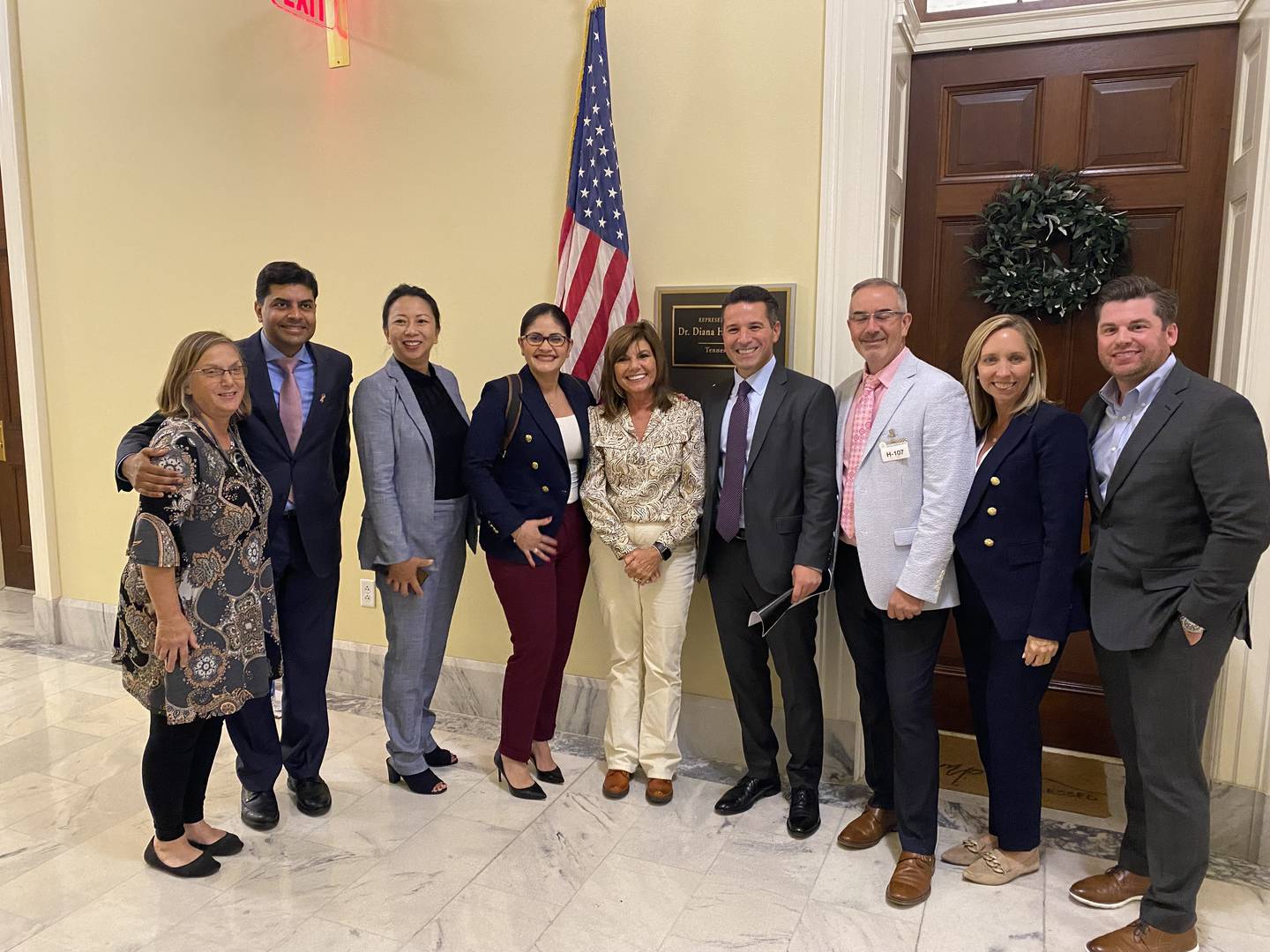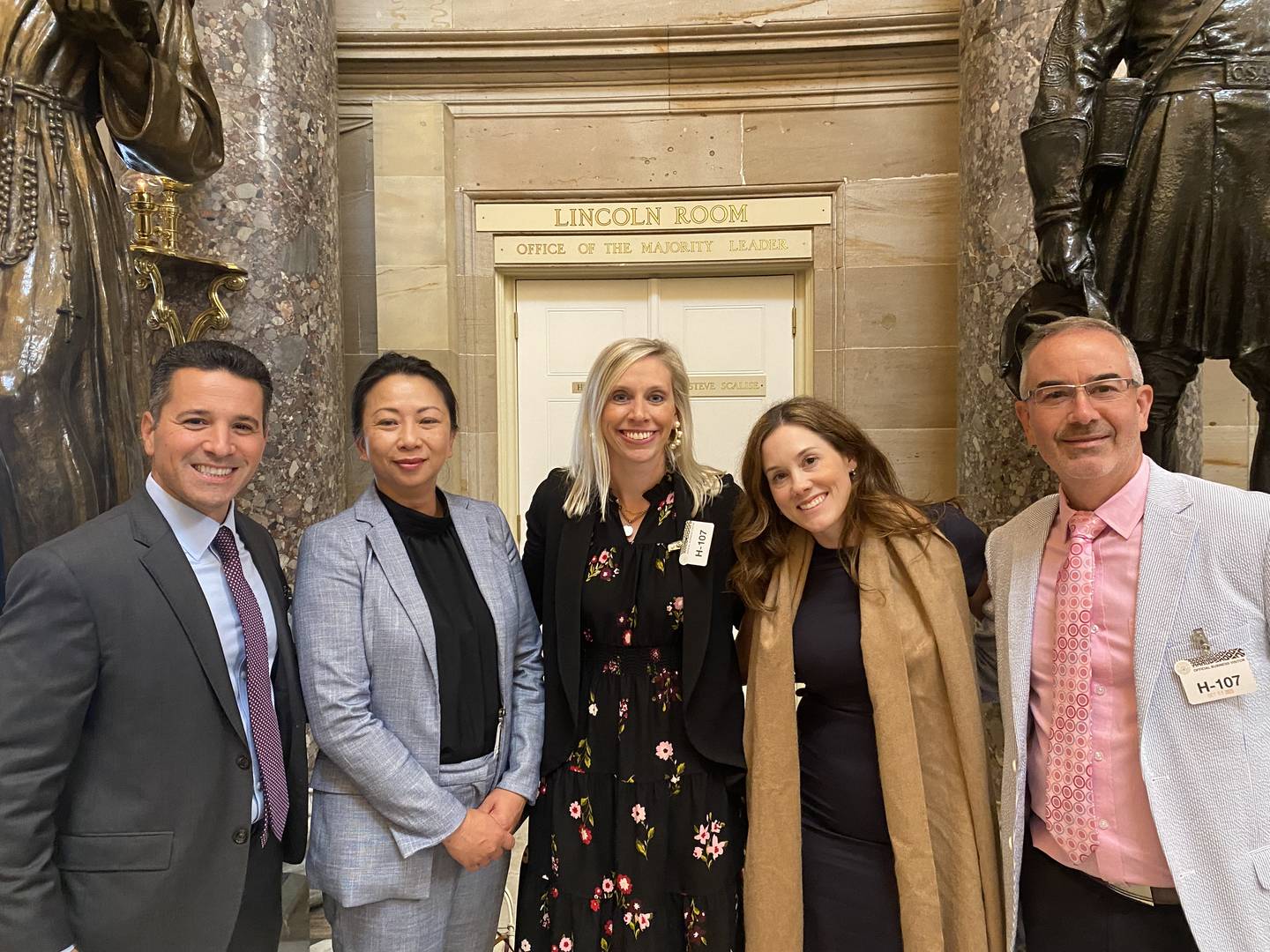Q&A: The Seniors’ Access to Critical Medications Act of 2023 (H.R. 5526/S. 3458)
By Lisa Harrison, Beth Mitchell
Quarterly Q&A with the Cencora Office of Government Affairs and Public Policy
The Stark Law, also known as The Physician Self-referral Law, was implemented decades ago with the intent to prohibit physicians from referring Medicare patients for certain designated health services to entities with which they have a financial relationship, unless an exception applies. During the COVID-19 public health emergency (PHE), the Centers for Medicare & Medicaid Services (CMS) issued a blanket Stark waiver that allowed delivery or pickup of prescription drugs, temporarily lifting the restrictions that hindered patient access to these medications.
Upon expiration of the PHE, CMS issued two FAQs inferring that the Stark waiver also expired and as a result, Medicare patients’ ability to access their prescription drugs was put in jeopardy, as physicians and their practices face a Stark violation if they continue to deliver drugs to their patients or allow someone other than a patient to pickup drugs from the medical practice — as they had been doing throughout the pandemic with no issues.
Bipartisan legislation is now being championed to address this concern by aiming to remove CMS's current interpretation of the law.
Lisa Harrison, SVP & President, Specialty Distribution and Solutions at Cencora (dba AmerisourceBergen) and Beth Mitchell, VP of U.S. Public Policy and Advocacy at Cencora sat down to discuss the proposed legislation and its impact on community-based specialty providers.


Lisa Harrison (LH):
Our specialty teams have been working closely with the Cencora U.S. Public Policy and Advocacy team, our customers, aligned coalitions and trade associations, and our U.S. Representatives and Senators to press for relief for physician providers. Today, we’re looking forward to discussing progress that has been made on a bill that would require CMS to revise its interpretation of the current Stark law, allowing physicians to resume mailing medications directly or allowing beneficiaries' family members or caregivers to pick them up on their behalf. This bill is H.R. 5526/S. 3458, the Seniors' Access to Critical Medications Act of 2023.
Beth, thank you for joining us today. Can you provide an overview of H.R. 5526/S. 3458? How did this bill get introduced and what all does it entail?



Beth Mitchell (BM):
The Seniors’ Access to Critical Medications Act of 2023 (H.R. 5526/S. 3458) was introduced in the U.S. House on September 18th, 2023, by U.S. Reps Diana Harshbarger (R-Tennessee) and Debbie Wasserman Schultz (D-Florida), with original co-sponsors Reps. Chuck Fleischmann (R-Tennessee), Donald Davis (D-North Carolina), Mariannette Miller-Meeks (R-Iowa), and Troy Balderson (R-Ohio). On December 11th, 2023, U.S. Senators Kyrsten Sinema (I-Arizona) and Marsha Blackburn (R-Tennessee) introduced companion legislation in the U.S. Senate. If passed, this legislation would be effective for services consisting of drugs and any supplies necessary for administering such drugs furnished on or after May 11th, 2023, when the PHE and Stark waiver related to this issue expired. The bipartisan, bicameral legislation would amend Section 1877 of the Social Security Act, clarifying that:
- Delivering medicines by mail, courier, or other methods and allowing a family member or caregiver to pick up medicines on behalf of a patient would not violate the Stark Law.
- These actions fall within the scope of commonly accepted Stark Law exceptions.
- In addition, the bill rescinds CMS’ previously issued FAQs on this matter.

LH: We fully support this bill and appreciate the steps that are being taken by Congress in response to CMS’ interpretation of Stark. The commitment from our customers and our team members has been monumental in making sure we are heard and that this issue is acted upon.
Beth, can you share any insights into the legislative process and typical timing for a bill to become law? What progress has been made on H.R 5526/S. 3458 since last September?
BM: The timeline for a bill becoming law involves several stages in the legislative process. I commend the entire community oncology and patient community for educating lawmakers and urging bipartisan action. Seeing bipartisan, bicameral legislation introduced is a great example of how impactful the physician and patient communities are, and it is a joy to work collaboratively with the Community Oncology Alliance (COA), customers, patients and many other stakeholders on this effort. The Cencora team in Washington continues to raise this issue with lawmakers and the need for swift action and increased support for enactment of this legislation. Every touchpoint and conversation with lawmakers and congressional staff helps to build awareness and momentum.
Typically, a bill like this will first be considered by a committee or subcommittee before being sent through both chambers of Congress and finally signed into law by the President. Each step is crucial for advancing towards enactment.
H.R. 5526/S. 3458 was considered by the U.S House Energy and Commerce Committee Subcommittee on Health during a March 12, 2024 markup session where Congress discussed nineteen bills aimed at improving patient and caregiver well-being.
During opening remarks at this session, Committee Chair Brett Guthrie (R-KY) stated that “The Seniors’ Access to Critical Medication Act would allow cancer patients to continue receiving the necessary care in the safest and most convenient way possible. I look forward to working with my committee colleagues to advance these two bills out of the subcommittee today and to addressing any additional outstanding issues before full committee.”
The subcommittee voted in favor of passing H.R. 5526/S. 3458 without any amendments onto full House Energy & Commerce Health Committee during the March markup session.
It's worth noting that getting a bill included in markup is no easy feat; therefore, it's positive news regarding relief for our customers and their patients. We've seen and been a part of significant effort and advocacy put into reaching this point. Although there are more steps ahead before becoming law, we're encouraged by engagement shown during this process.
LH: This certainly is positive news and our dedication to supporting our community-based practices remains unwavering. It is important to highlight the exceptional expertise and dedication that we collectively bring to the cause.
Through utilizing our strong relationships and comprehensive knowledge, we can advocate effectively for the needs of specialty physicians. Together, we can preserve the vitality of community practices and secure uninterrupted access to quality care for patients.
BM: Agreed, Lisa. Our U.S. Public Policy & Advocacy team will closely monitor the progress of H.R. 5526/S. 3458 as it moves forward, and we remain committed to keeping community-based providers informed of any updates. It's important for us all to stay engaged in advocating for improved access to critical medications for patients.


Note: Information provided is current as of March 21st, 2024.
Citations
- https://www.cms.gov/Medicare/Fraud-and-Abuse/PhysicianSelfReferral/index
- https://www.cms.gov/Medicare/Fraud-and-Abuse/PhysicianSelfReferral/Downloads/FAQs-Physician-Self-Referral-Law.pdf
- https://www.hhs.gov/coronavirus/covid-19-public-health-emergency/index.html
- https://harshbarger.house.gov/sites/evo-subsites/harshbarger.house.gov/files/evo-media-document/seniors-access-to-critical-medications-act_summary_hr-5526-final-09192023.pdf
- https://energycommerce.house.gov/posts/health-subcommittee-markup-recap-e-and-c-advances-bills-to-improve-health-for-patients





